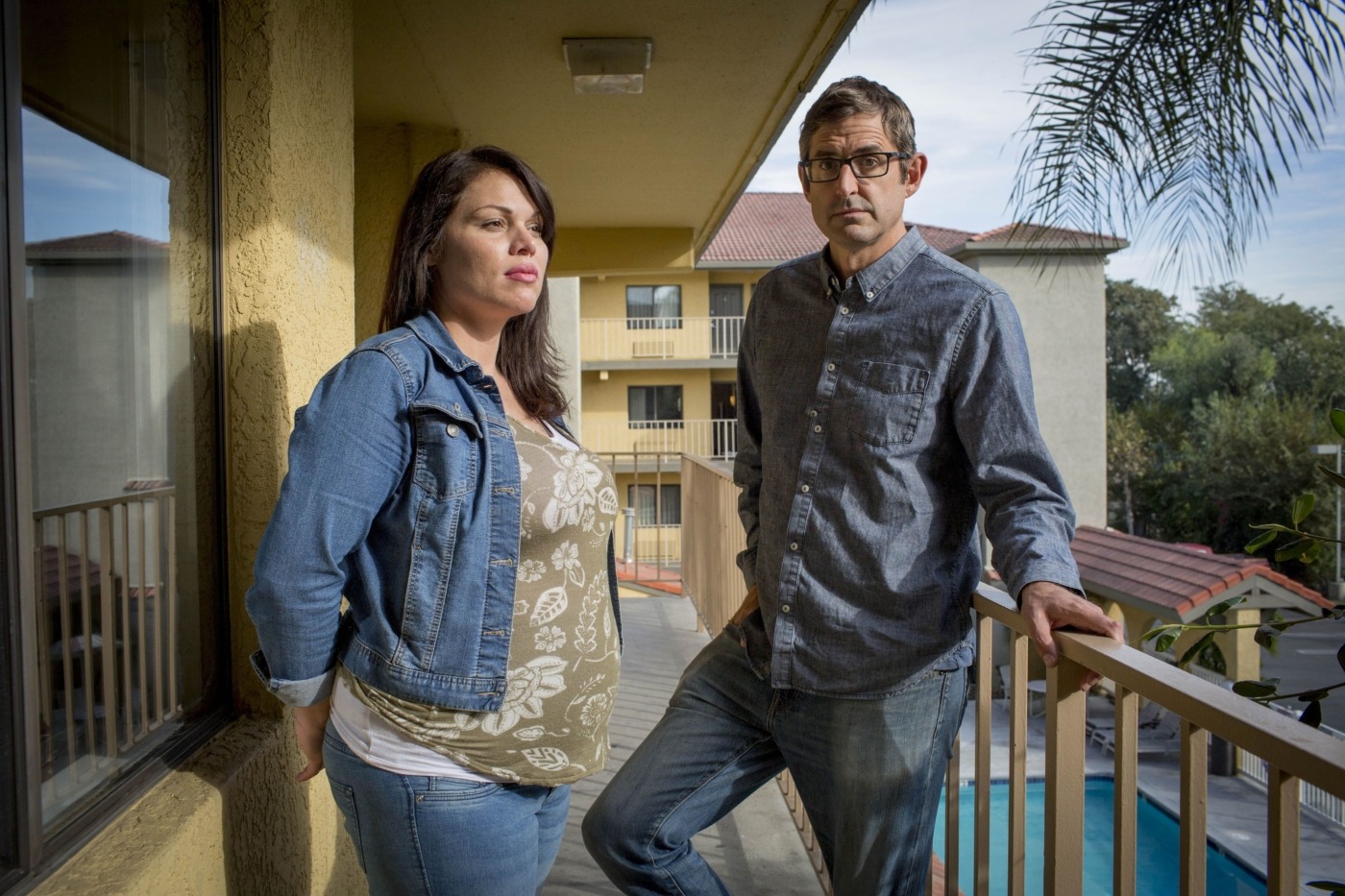Louis Theroux’s Altered States – Take My Baby
In the last instalment of his new series Altered States, Louis Theroux explores a different approach of adoption in Southern California, and the lengths some parents will go to get a baby. Open adoption works on the basis where hopeful parents pay thousands to agencies to be matched with pregnant women who will let them adopt their child. It is a practice which hopes to eliminate stigma and secrecy, but one which hinges on the hardest decisions one can imagine. In ‘Take My Baby’, Theroux examines the practicality of a system so open to taking advantage.
Firstly, Theroux meets with Irene and Mel, adoption facilitators whose business involves finding a pregnant woman who is unable to keep their babies once they are born and match them with parents looking to adopt a child. The first mother the audience is introduced to is Patricia, a mother of three, who had fallen on hard times and was facing setbacks, who wanted to put up her daughter for adoption after she was born. She explained to Theroux that: “it’s not about me, it’s not about anyone else but my child,” she wanted a better life for her daughter than she thought she could provide. The facilitators present Patricia with profiles of prospective parents, from which she picked Amy and Ari.
It was almost surreal to watch a woman decide who she wanted to give her child away to after just reading a profile page – from every possible angle, there would be life-changing consequences from this one decision. The open adoption programme essentially lets the mother pick-and-choose parents, who cover her living expenses until the birth of the child. The catch is, however, that even after having paid up to $50,000 to a mother, she may then decide to keep her child, and is under no obligation to give the child up for adoption, and the prospective parents may only receive around $10,000 back. Open adoption is on the rise in the US and is quickly becoming a billion-dollar industry; couples are spending tens of thousands of dollars on legal fees, agency fees, and living costs of birth mothers, with absolutely no guarantee that they will have a baby at the end of the process.
The catch is, however, that even after having paid up to $50,000 to a mother, she may then decide to keep her child, and is under no obligation to give the child up for adoption, and the prospective parents may only receive around $10,000 back
Theroux investigates further than just the financial aspect of open adoption when he meets Jessica, a young mother-to-be who wants to give her baby up for adoption to Cat and Dan, a couple unable to have their own children. Theroux meets with Jessica and her mother, where we learn that Jessica is not yet fully an adult, and would not be able to raise a child at that current point in time. Jessica’s mother, who had no grandchildren hitherto, was tearing up when explaining her feelings about her daughter’s decision: “I’m losing my grandchild… When he’s born, it’ll be like a death in the family again, except there’s no closure.”
When exploring adoption, whether open or closed, one needs to look at the other end of the spectrum, which is exactly what Theroux does. We are introduced to Isaiah, a 10-year-old boy who was adopted by Joanne and her husband, with a reunion with his biological mother on the cards. Theroux aims to find whether there is such a thing as a bond between a child and their biological mother. When Isaiah’s mother, Trina, flew in from Texas, and the two ran into each other’s arms at the airport, it was difficult not to feel overwhelmed with emotion. As the two reunited and cried, Theroux stood in the background with his characteristic awkward stance, with hands in his pockets, smiling. Isaiah’s story was one which highlighted the benefits of open adoption: the inclusion of biological mothers. There is strength in families including birth mothers, it is a source of great comfort to mothers who gave their children up to allow them to have a better life, as well as an enrichment for the children involved.
Isaiah’s story was one which highlighted the benefits of open adoption: the inclusion of biological mothers
Though perhaps not the most dramatic episode of the series, ‘Take My Baby’ sees Louis Theroux asking the hard questions, without overstepping the boundaries, and offering a balanced and thought-provoking look at such an emotive and personal subject. While open adoption may not work for everyone, it works for some. Altered States is a brilliantly made documentary series; tackling the hard issues with sensitivity, empathy, and respect, it seems that Louis Theroux can do no wrong.
Episode 1: ‘Love Without Limits’
Episode 2: ‘Choosing Death’

Comments
Comments are closed here.